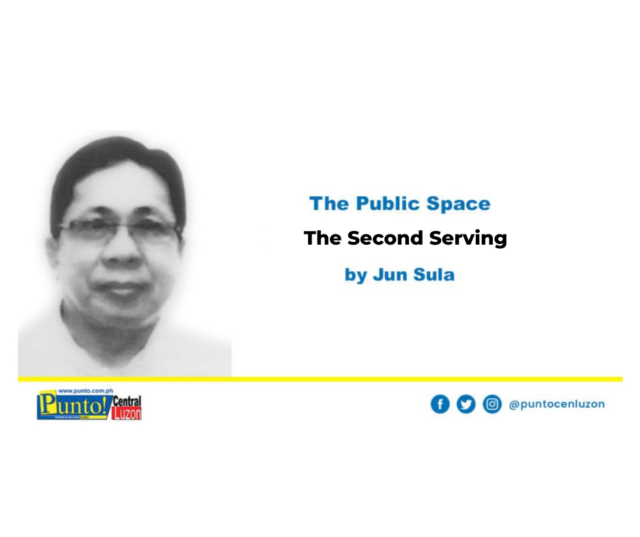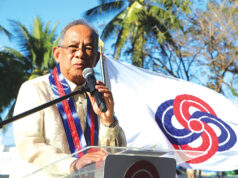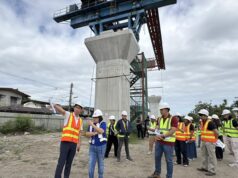The unspoken message was inescapable. Maybe that was the intention. It warms the soul. It’s incredibly good.
Like Moses of the Bible who delivered his people from slavery in Egypt and led them through the Red Sea into the Promised Land, one full of milk and honey, President Bongbong Marcos has declared that a new Philippines has arrived on his watch at his second state-of-the nation address (SONA) last Monday.
A better future awaits every Filipino. He and his countrymen have collectively reached a historical turning point; they have to work hand in hand in the days ahead — at least five years—to reach what may be his vision: a golden age that he once remembered defined a past under the older Marcos. There was once pledged a new society during his father’s time; there’s a new country under the son. Like father, like son?
It’s difficult for anyone to refuse or even doubt a good, if not perfect, presidential report that PBBM so skillfully delivered for a little more than an hour. The denouement was predictable and anticipated. Many hoped that he would say what he did – hope, essentially—because it’s what people need. They may not agree on the details, for one reason or another, but need to be assured that all things are going well even if there are signs threatening such fragile confidence.
At least for two reasons. First off, we have not heard the best news in a long, long time. Second off, the last time we did, we took a deep sigh of relief that a bully president who nearly emasculated Philippine democracy had finally ended his term. The election of PBBM can be seen partly in that light. Unfortunately, it seems irrelevant now under this administration., given his declaration.
Well, PBBM cited his commitment to respecting every man and woman’s right. That may be in the future and present tense, not in the past. Before his second SONA, the International Criminal Court has decided to go ahead with its investigation of alleged crime against humanity during the war-on-drugs of the previous administration. No way, PBBM and company say, they will not throw Duterte et al under the bus, even if 6,000 to 30,000 lives were believed to have been wasted his time.
There are two important reasons why PBBM should rethink his position. The first one is that, the treaty which he and other senators at the time, provides that the Philippines honors its obligation after it decides to cut its umbilical cord from it. The alleged crime against inhumanity was committed when the country was still part of it. The second one is the Supreme Court ruling that the country should abide by its commitment.
In his recent SONA, the President talked about following rules-based pacts internationally. He took pride in his many trips abroad to show that he honors obligations as a way of attracting, firstly, foreign investors in the country, resulting in trillions of dollars in investment pledges. Does he walk the talk? His top, if not favorite, finance man in the Cabinet can use a favorite term “contrafactual” to remind his younger boss.
PBBM talked about accountability. Has he not said that he would accept the resignation of police officials, 18 of them to be exact, found involved in illegal drugs? He must be reminding himself as well. Moses broke God’s law at one time and it cost him dearly: God said he would not set foot on the Promised Land because he disobeyed.
Five years is a long time. PBBM must be looking forward to the day when he retires and sees his vision of a new Philippines realized beyond his mortal imagination. Let his idea of accountability bring him to the exciting end of his journey. In the meantime, there are issues about fulfilling his obligation. The ICC challenge and the pending issue about the SC ruling on the Marcos P23 billion or P203 billion estate tax put him in an untenable spot.
It is true, as he reported,inflation was the biggest monster he and the nation had to slay. He forgot to mention that was partly, or largely, due to the hoarding and smuggling, even importation, of agricultural products by what is known as cartels in the agricultural industry. He has given a warning that their days are numbered. It’s about time he made good on that vow. The agency he heads has been the most unproductive arm of the government. He should know who are, borrowing a term from his father’s time, the “undesirables”.
PBBM intends to build more public works infrastructure, road and bridges as the country becomes more progressive and competitive. He should listen to Baguio City Mayor Benjie Magalong. Corruption is probably worse in this area. By his research, a public works contractor earns less than P.50 centavos for every P1 that the government spends for public projects. The rest goes to politicians. Beware: many of them may have greeted or shook his hands on the way to or from the stage.
They are likely among those who clapped animatedly when this was announced. Apparently, they might have held their breath also when the President announced that he would eliminate TB in his health program. Coughing could have been construed as guilt over allegations of corruption among politicians as exposed by Magalong.
It’s good that two former presidents were present in the SONA. It is a warning that all presidents have a limit to what they can do, especially legally. PBBM’s statement of sticking to the rule of law is timely reminder that this has been honored in the breach by many in government. The recent reports by the Commission on Audit of several agencies, including that of the Office of the Vice President, setting the auditing rules aside, shows that that rule is not sacrosanct.
The sad downside to PBBM’s declaration that a new Philippines has arrived was that he didn’t declare a holiday of thanksgiving for such a momentous achievement. It would have given the declaration a deeper meaning for the nation. It should be institutionalized, like the EDSA People Power Revolution in 1986. It was no less than a redemption from the besetting, even brutal, shackles of the past and a great incentive toward the foreseeable future.





